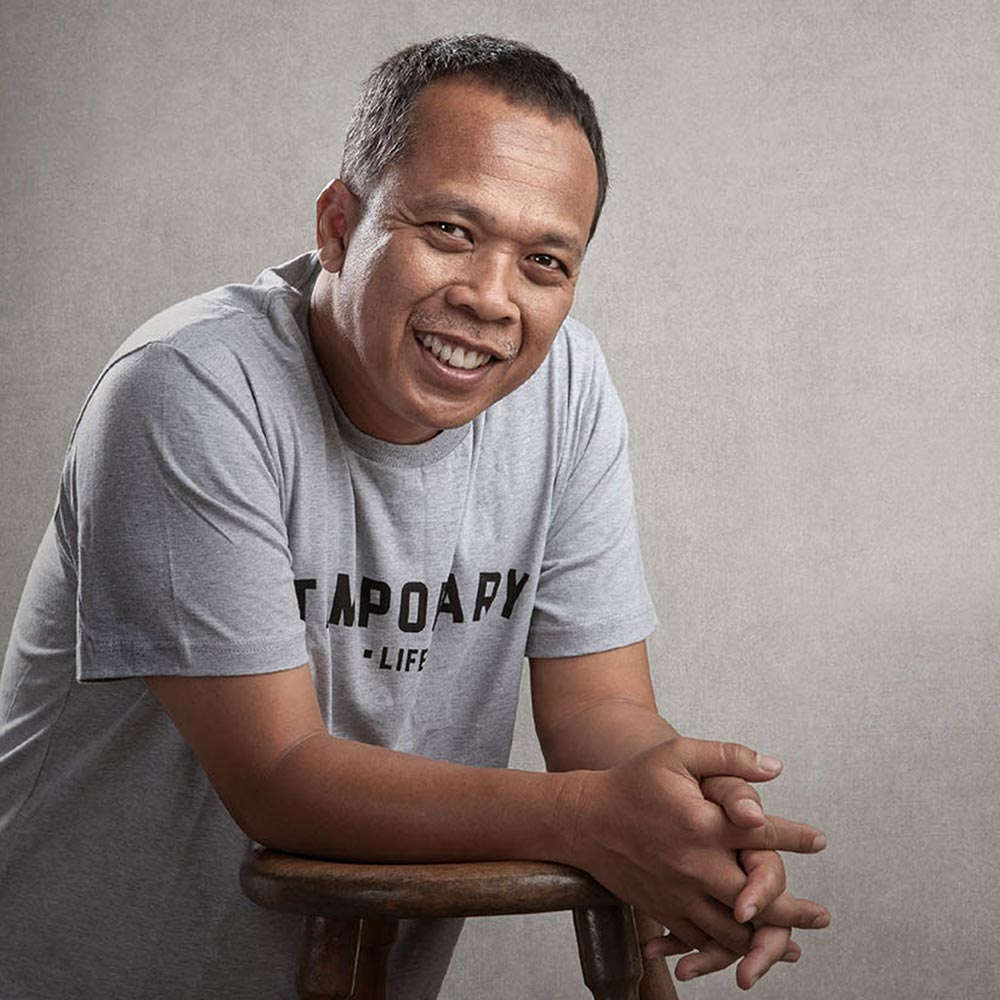Fatchurohman

Artisan Organization: Fatchurohman
Country: Bali & Java
"I was born in 1966 in a small town Central Java, the fifth of seven children. My parents were just ordinary government officers. Our town was lovely with cool weather and nice views, and most of the people work as farmers. After finishing high school, I moved to Bandung. I'm married now and we have three children.
"I love exercise, especially running.
"Like everyone else. I've faced difficult times in my life. One thing that I always remember is to be patient and keep fighting, hoping someday all the bad things will get better.
"Then, one day, I became really proud of myself when people finally appreciated my art. That is the fruit of my hard work and my learning time. I'm always learning about new things because I've always thought to myself that this knowledge could be really useful in the future.
"Of all of my collections, the most challenging is a technique known as kolaste, a combination of collage and weaving. Not many people use it, which makes my work different from that of others. I'm the one who designs my journals and I also coordinate everything with the artisans who assist me.
"Normally, I look for the old and used fabrics sold in the traditional market to make paintings and notebooks. But today I also use old-look batiks. Our tools and equipment are simple like scissors, utility knives and glue.
"When I see a lot of unused paper, just trash, thrown away by people, I feel inspired. So I collect it and transform it into art.
"But my work isn't only about recycling — it is also to introduce the old batik motifs to the world. By introducing batik, I am also introducing Indonesian culture, because batik has been created and worn by our people since long ago times.
"Besides crafting my journals and notebooks, I'm also part of a craftsman community. My friends often tell me I'm highly tolerant, full of consistency and they also see me as a patient man because I'm rarely angry with anyone.
"My greatest professional achievement was when I won recognition from UNESCO. Then, in an exhibition, I met you. Now I'm able to show our Indonesian batik culture around the world. I hope you like my work.""


